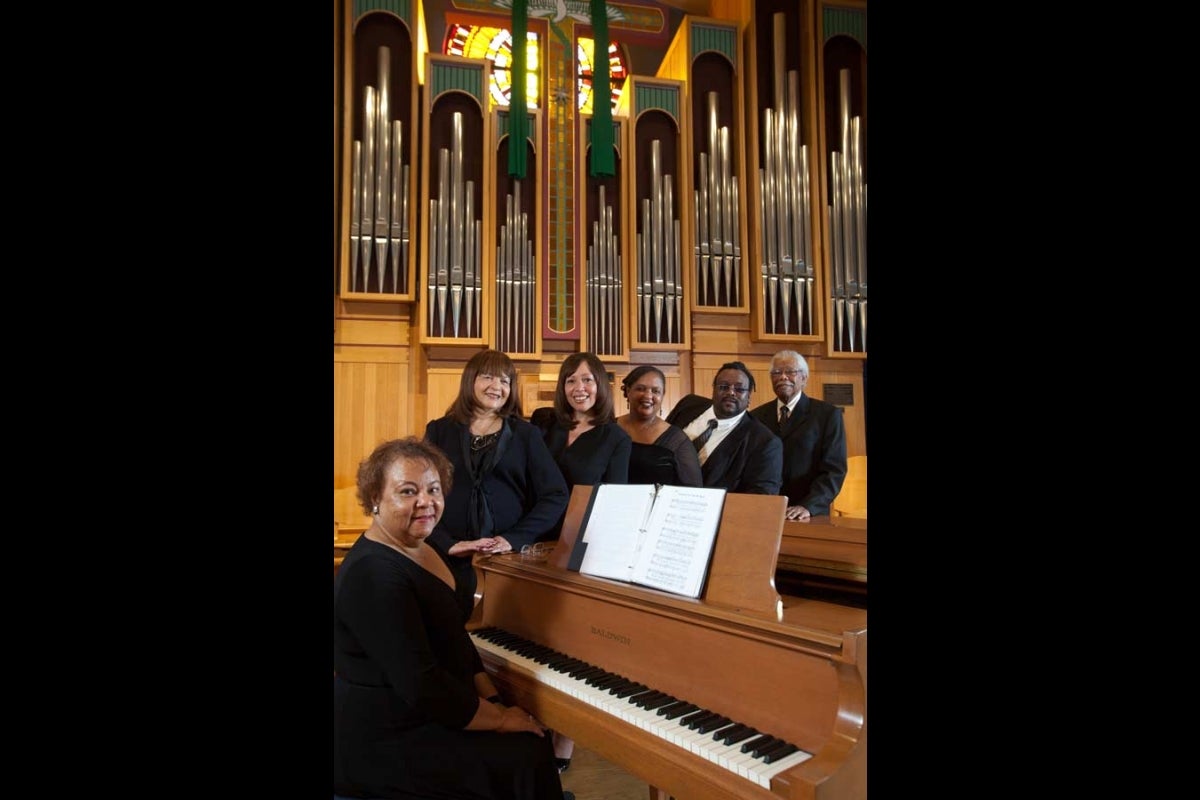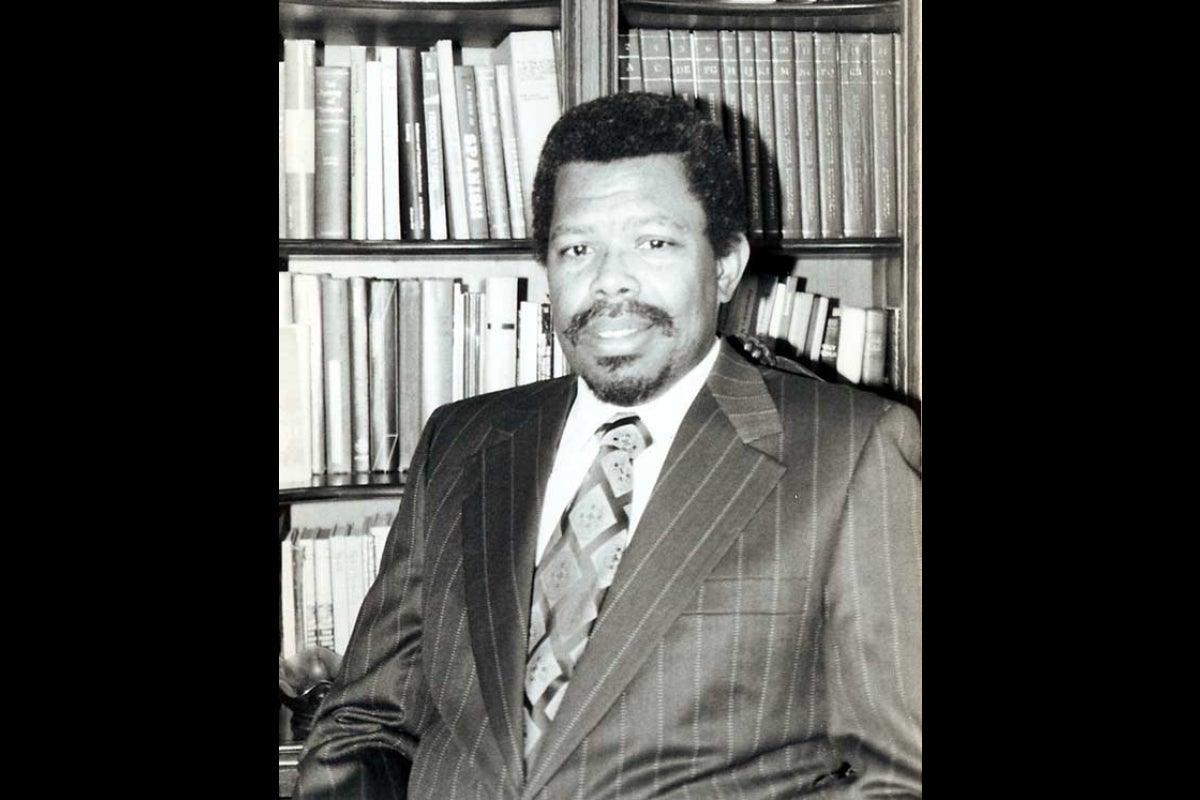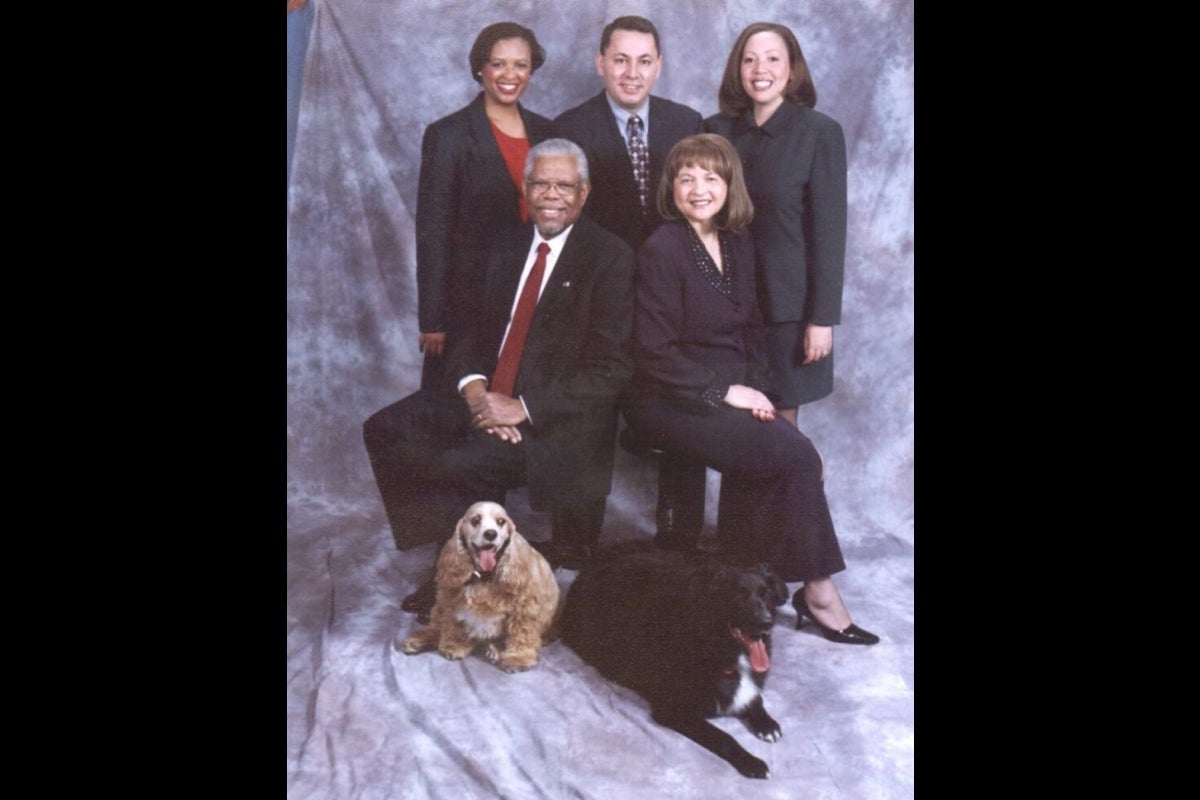ASU engineering schools pioneer leaves behind a legacy of caring

Albert McHenry is remembered by colleagues at Arizona State University for his exemplary leadership over several decades as he played significant roles in the advancement of engineering and technology education and the growth of the Ira A. Fulton Schools of Engineering. Photo courtesy of the McHenry family
Albert McHenry, who died last month at the age of 83, retired from Arizona State University’s Ira A. Fulton Schools of Engineering as an emeritus professor in 2008 after 45 years in higher education.
Over those years, he earned a distinctive reputation as a leading expert in engineering technology education. He was honored by the American Society for Engineering Education for his career achievements and received some of the more prestigious awards for contributions to advances in teaching and scholarship.
McHenry’s contributions were essential to efforts to establish and grow the university’s Polytechnic campus, where he would also serve as the founding dean of the former College of Science and Technology, become the executive vice provost and vice president of the new campus and have a leading role in developing The Polytechnic School, part of the Fulton Schools.
McHenry’s legacy as a leader was honored by the establishment of the Albert L. McHenry Scholarship for College of Technology and Innovation Students Endowment, which has since been aiding the education of numerous students on paths to engineering and technology careers.
Colleagues, friends and family members who speak of McHenry express heartfelt respect and admiration for his professionalism, knowledge, compassionate nature and leadership.
Community-building contributions
In addition to what he did to support students' education, colleagues say McHenry took steps to support the development of fellow faculty members and staff of the school he led.
“Dr. McHenry was really a remarkable individual. I would say that one of his strengths is that he knew how to build community. He knew how to hire the type of faculty who complement each other, and then he invested in those people whom he had hired,” says Narciso Macia, a Polytechnic School emeritus professor.
“Dr. McHenry loved the students. They were always welcome to come into his office to talk,” he says. “That is a difficult thing to maintain, that kind of closeness and collegiality, as a university gets bigger. But he continued to do it even as he attained other important positions at the university.”
Gary Grossman, an emeritus professor in ASU’s School for the Future of Innovation in Society and one of McHenry’s longtime colleagues, describes him as “the very rare combination of a great man and a good guy.”
Even as McHenry moved into the high position of executive vice provost and vice president of the Polytechnic campus, “nobody was ever more invested and supportive of people than Al,” Grossman says. “He was a true leader. He laid the intellectual foundation for what were the components of the College of Technology and Applied Sciences, which had many, many spin-off effects.”
Enrollment in the college during McHenry’s tenure as dean jumped more than 50%.
Grossman recalls McHenry’s skills in helping to create and evolve multiple undergraduate and graduate degree programs that have since been attracting more students.
“He started things moving that have had real legs and have lasted,” he says, noting that McHenry’s efforts laid foundations for what have become the most valuable features The Polytechnic School has to offer.
Such praise is echoed by Professor Kurt Paterson, the current director of The Polytechnic School.
“Many academics eventually realize that their life’s most important work is how they’ve helped others. By that measure alone, Dr. McHenry had an amazing career, setting in motion better lives for many thousands of students, faculty, and staff, and countless others,” Paterson says.
McHenry’s ability “to transform an idea for a new college into reality only happens with the courage to imagine something better, to collaboratively build with empathy, and to champion change against the odds,” he adds. “The Polytechnic School is proof that good leaders matter, and the school is rich with possibilities today because of Dr. McHenry’s selfless dedication to ASU.”
Emeritus Professor Charles Backus, who helped found Arizona State University East — later to become the Polytechnic campus — recalls McHenry as an outstanding student and then an exceptionally skilled teacher early in his career.
“While he was still working on his doctoral degree, we offered him a professorship in what was then our School of Technology,” says Backus, who was the first provost of the Polytechnic campus.
Backus later helped to lead an effort to make the school a full-fledged college and then made McHenry the college’s dean. McHenry served admirably in that position for many years, Backus says.
“Dr. McHenry was a leader of immense vision and integrity whose commitment to excellence elevated the entire Polytechnic campus community,” says Kyle Squires, vice provost of the Polytechnic campus and dean of the Fulton Schools. “His legacy is one of enduring impact, rooted in compassion, collaboration and an unwavering dedication to the success of students, faculty and staff. Dr. McHenry left an indelible mark, and his memory will continue to inspire us all.”
Helping to create a culture of kindness
Anna Wales, whose many roles at ASU include business development coordinator for the Futon Schools, found McHenry among the most admirable colleagues with whom she has worked.
“He was dedicated to our students and faculty. I appreciate his respect and advocacy for staff. Any time staff had fundraisers for scholarships, he was one of the first to donate to help us be successful,” Wales says. “He and his wife Annette were incredibly generous.”
McHenry “never stopped learning and doing his research, and he created a culture of kindness and inclusiveness for all of us at ASU,” she says.
“Albert McHenry embodied the full spirit of the ASU we have become and exuded the essence of all we stand for with grace and thoughtfulness,” ASU President Michael M. Crow said. “I am grateful for the wisdom and service he contributed to the evolution of our university, and for the memories we shared. Al made a permanent impact on ASU that will live on in all we do.”
Joan McHenry Sherwood, one of McHenry’s daughters and assistant vice president of ASU’s Educational Outreach and Student Services, echoes those assessments of her father’s contributions.
“He was passionate about work he was doing to benefit students. People will tell you how very caring and deeply committed he was to the success of students,” Sherwood says. “In fact, one of my friends just told me recently that she’s now married to one of my dad’s former students, and she said that her husband described my dad as his ‘ASU dad,’ because that’s just the kind of care that he delivered to his students.”
She sees the core of her father’s legacy reflected most meaningfully by the affirming figure he was in many people’s careers and lives.
“His investment in people has been inspiring,” Sherwood says, “and it drives a lot of what I try to do in my career and in the community.”
Memorial and burial services info
Memorial and burial services for Albert McHenry will be from 10 to 11:30 a.m., Saturday, Oct. 12, 2024, at the Queen of Heaven Catholic Cemetery & Funeral Home, 1562 E. Baseline Road in Mesa.
A celebration of life and reception is scheduled for noon to 1:30 p.m., Saturday, Oct. 12, 2024, at the ASU Polytechnic campus, Student Union, Cooley Ballroom, 7001 E. Williams Field Road in Mesa.
In lieu of flowers, consider donating to the endowment.
More Science and technology

ASU-led space telescope is ready to fly
The Star Planet Activity Research CubeSat, or SPARCS, a small space telescope that will monitor the flares and sunspot activity of low-mass stars, has now passed its pre-shipment review by NASA.…

ASU at the heart of the state's revitalized microelectronics industry
A stronger local economy, more reliable technology, and a future where our computers and devices do the impossible: that’s the transformation ASU is driving through its microelectronics research…

Breakthrough copper alloy achieves unprecedented high-temperature performance
A team of researchers from Arizona State University, the U.S. Army Research Laboratory, Lehigh University and Louisiana State University has developed a groundbreaking high-temperature copper alloy…




